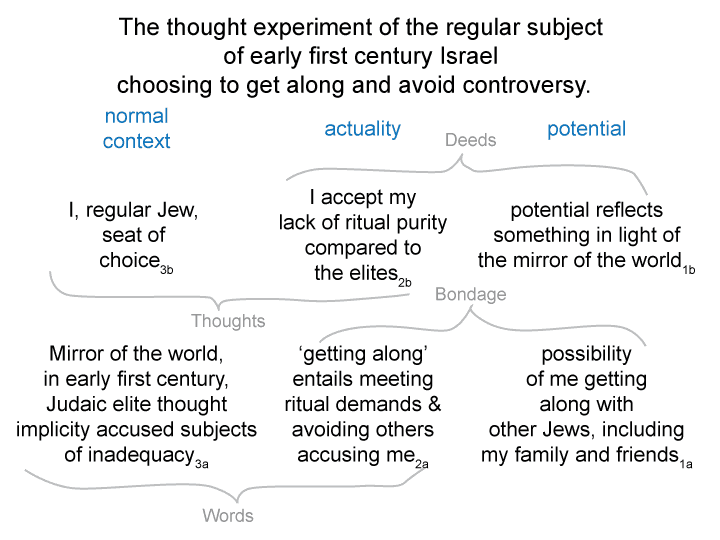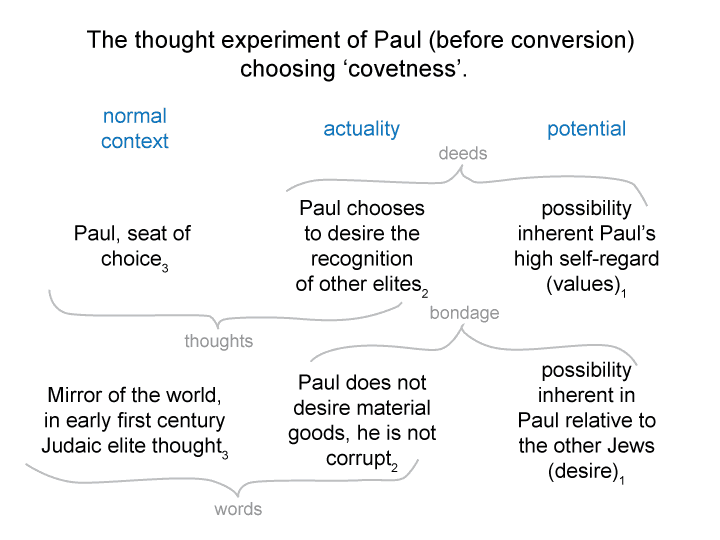Category Archives: New Look at Tradition Views
Man and Sin by Piet Schoonenberg (1964) 2.3 LQ
[Since the Second Temple Law was complicated and self-contradictory, accusations could always occur (especially if one attracted attention).
This threat of accusation made it easy for common folk to choose a lack of self worth in order to avoid catastrophic accusations.]
Man and Sin by Piet Schoonenberg (1964) 2.3 LK
[Consider histories of Franklin Roosevelt written in the 20th century (7700s U0’).
Not one assessed the economic consequences of Roosevelt’s tragic and capricious presidential leadership.
The Federal Reserve Board caused the Great Depression.
Roosevelt did nothing to stop their madness.
He enhance the Great Depression by supplementing economic with political uncertainty.
Why did America not fall into revolution?
The common folk were still Christian.]
Man and Sin by Piet Schoonenberg (1964) 2.3 LI
[Why did modern historians believe the rhetoric of the Pagan Romans?
Traditional pagan Romans blamed Christianity for their decline.
Naive and self-absorbed modern intellectuals took their words at face value.]
Man and Sin by Piet Schoonenberg (1964) 2.3 LH
Maybe, the enhanced economic performance of (what later was negatively labeled) “the Christians” permitted the Roman Empire to survive as long as it did.
This conclusion flies in the face of massive tomes, carrying titles like The Rise and Fall of the Roman Empire.]
Man and Sin by Piet Schoonenberg (1964) 2.3 LG
Summary of text [comment] page 83
[Here is a strange claim:
In the late Roman Empire, the converted Jew and the Jesus-worshipping slave may have been marginally more economically productive than the Second Temple Jew and the pagan slave.
Why?
The former were not of this world3a. They were in the world3a but not of it. Therefore, they did not bother with unproductive fantasies2a.]
Man and Sin by Piet Schoonenberg (1964) 2.3 LF
[The New Testament co-opposition of responsibilities3(2()) and freedom2(1) captures a moment of redefinition.
The bondage to the words of the Judaic law ended.
By choosing3b the way of Jesus2b, a converted Jew was more free1a to pursue “his” preferences in selecting responsibilities3a.
Ironically, the less political people of Christ’s way produced more wealth than the very political and wealth-devouring Jewish or Roman elites of the time.]
Man and Sin by Piet Schoonenberg (1964) 2.3 LE
Summary of text [comment] page 83
[The average first century Jew could not live up to the multitudinous and litigious obligations of ritual purity.
Religious, tribal and family obligations depleted individuals of resources and inspiration.
Something2a would eventually give.]


